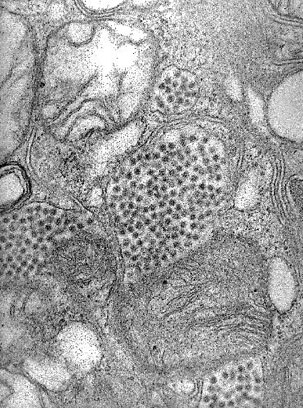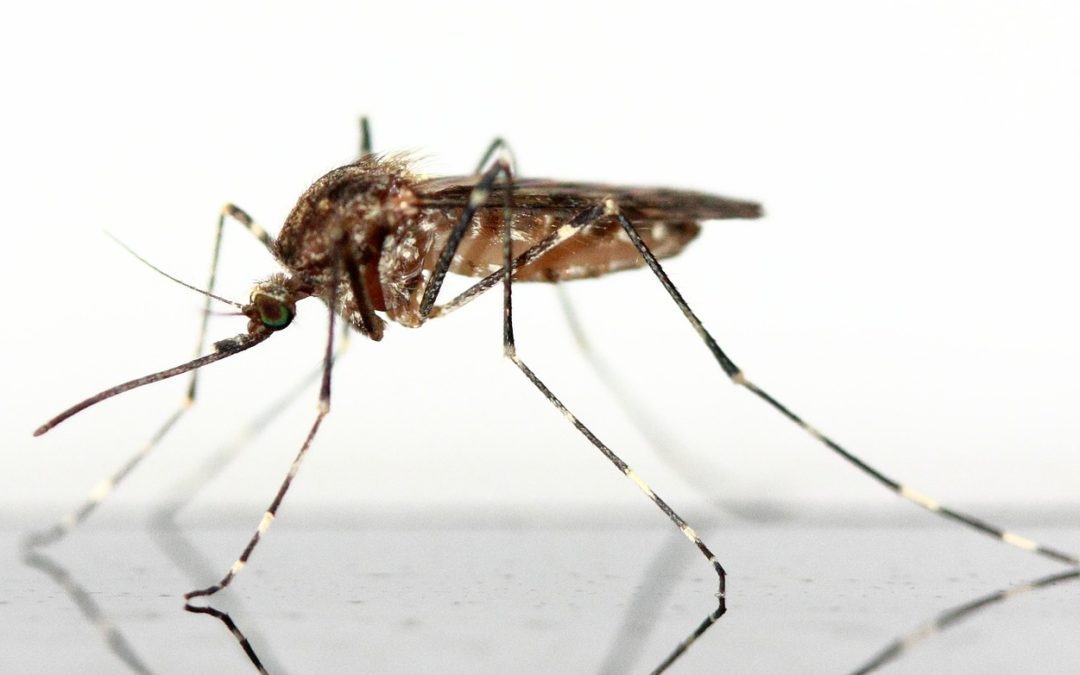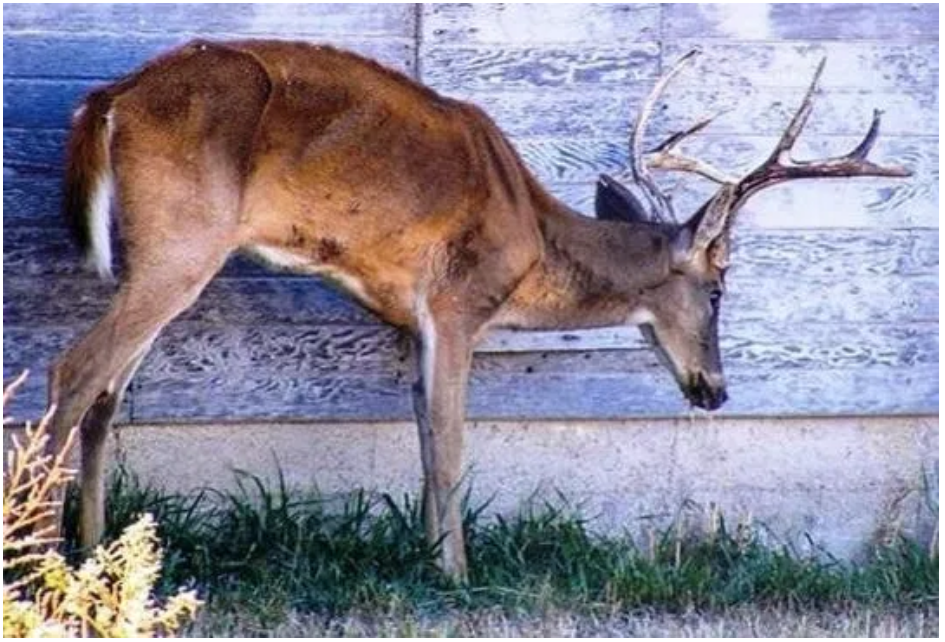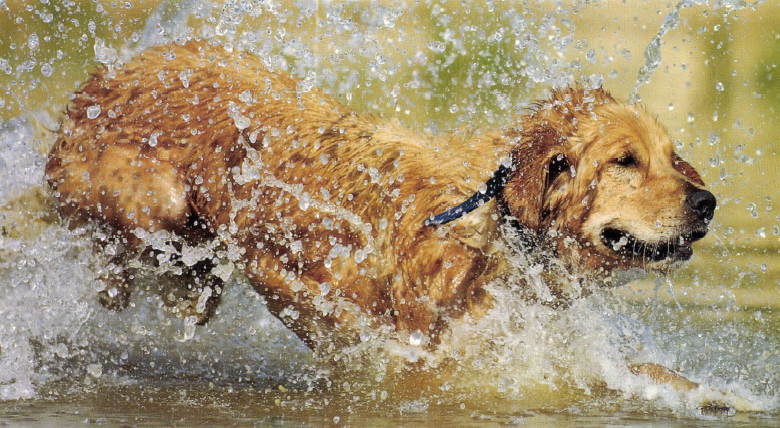Four human cases have been reported in New Jersey this year. The disease, which is similar to West Nile virus, can infect humans, mammals and birds through the bites of mosquitoes that have fed on infected reservoir hosts. While most people infected with the EEE virus show no signs of illness and make a full recovery, the disease is serious with 4 to 5 percent of those infected developing flu-like symptoms that advance rapidly, often leading to permanent disability. The virus can also cause death.

Eastern Equine Encephalitis virus. CDC photo.
The deer in Winslow was described as disoriented, thin and drooling. When it was approached it was unafraid and was lying down with its head up. The deer was euthanized by a Division of Fish and Wildlife Conservation Police Officer and submitted to the NJ Department of Agriculture for testing.
Other symptoms in deer can include depression, weakness, loss of coordination, circling, seizures, blindness, excitability, aggression and irritability. The disease appears to minimally impact deer populations in North America and is unlikely to significantly impact the overall deer population.
Most birds with EEE do not show any symptoms and never become ill. However, EEE can cause illness and death in some bird species including pigeons, pheasants, turkeys, emu and quail. Birds infected with EEE may exhibit a staggering gait, drooping wings, twisted neck or tremors.
The Division offers the following tips to reduce the potential for contracting EEE:
- Use insect repellent when outdoors and cover exposed skin, especially at dusk when mosquitoes are most active. Standing water around homes also should be removed because mosquitoes lay their eggs in water. Host seeking mosquito activity may persist during the day at this time of year if temperatures are warm enough for mosquitos to fly (55 degrees F and higher). The first killing frost is the official end of the adult mosquito season in any given area.
- Take precautions when field-dressing harvested animals to avoid contracting potentially infectious diseases. Wear gloves when field dressing, skinning and/or processing game, and clean knives thoroughly before and after using them. Thoroughly wash hands when through.
- EEE is not transmitted by direct contact, however contact with the brain and spinal cord of an infected animal through the eyes or an open wound could potentially lead to infection in humans. Infectious material may also become aerosolized and be inhaled when hunters saw through brain tissue to remove the antlers. These modes of transmission of EEE virus to humans are probably unlikely, but it is important to be cautious.
- Cook wild game meat thoroughly to a minimum internal temperature of 165°F. While there is no evidence that people can become infected with EEE from preparing or eating infected meat, any risk of infection can be eliminated by proper handling and thorough cooking of meat before it is consumed.
If you observe wild birds or mammals exhibiting unusual behaviors or the symptoms described above, please call the Division’s Wildlife Pathology Office at 908-735-6398 or the DEP Hotline at 877-WARN-DEP (877-927-6337).
 On these pages is a stellar lineup featuring some of the greatest names in American sporting letters. There’s Nobel and Pulitzer prize-winning William Faulkner, the incomparable Robert Ruark in company with his “Old Man,” Archibald Rutledge, perhaps our most prolific teller of whitetail tales, genial Gene Hill, legendary Jack O’Connor,Gordon MacQuarrie and many others. Shop Now
On these pages is a stellar lineup featuring some of the greatest names in American sporting letters. There’s Nobel and Pulitzer prize-winning William Faulkner, the incomparable Robert Ruark in company with his “Old Man,” Archibald Rutledge, perhaps our most prolific teller of whitetail tales, genial Gene Hill, legendary Jack O’Connor,Gordon MacQuarrie and many others. Shop Now



